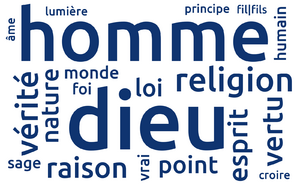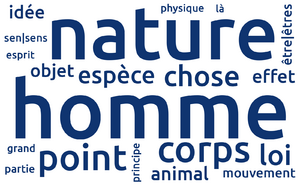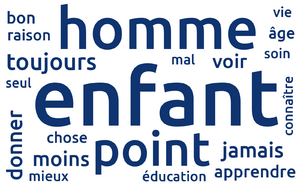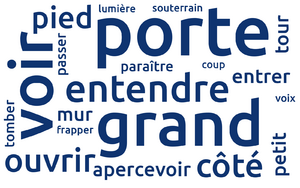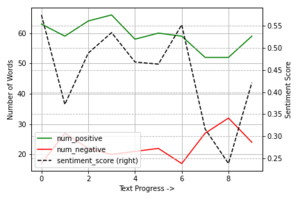Histoire des Cacouacs (Q1368): Difference between revisions
Jump to navigation
Jump to search
(Created claim: narrative location (P32): imaginary place (Q3371), Adding claim P32) |
(Changed claim: about (P36): childhood (Q2891)) |
||||||
| (71 intermediate revisions by 2 users not shown) | |||||||
| aliases / fr / 0 | aliases / fr / 0 | ||||||
Nouveau mémoire pour servir à l’histoire des Cacouacs | |||||||
| Property / BGRF ID: 57.10 / reference | |||||||
| Property / author: MOREAU, Jacob-Nicolas / reference | |||||||
| Property / title: Nouveau mémoire pour servir à l’histoire des Cacouacs (français) / reference | |||||||
| Property / place of publication string: Amsterdam (français) / reference | |||||||
| Property / publication date: 1757 / reference | |||||||
| Property / publication date string: 1757 (français) / reference | |||||||
| Property / distribution format string: in-12 (français) / reference | |||||||
| Property / number of pages string: 108p. (français) / reference | |||||||
| Property / narrative form string: 1re personne (français) / reference | |||||||
| Property / narrative location string: cadre fantaisiste (français) / reference | |||||||
| Property / characters string: Valentin (valet du narrateur), les Cacouacs, les Alétophiles (français) / reference | |||||||
| Property / BGRF_plot_theme: converti d’abord par les Cacouacs qui l’ont fait prisonnier, le narrateur finit par comprendre ses erreurs (français) / reference | |||||||
| Property / BGRF_tone_intention: satire du parti des Philosophes (français) / reference | |||||||
| Property / place of publication: Amsterdam / reference | |||||||
| Property / token count | |||||||
| |||||||
| Property / token count: 11,815 / rank | |||||||
| Property / narrative location: imaginary place / reference | |||||||
| Property / full work available at URL | |||||||
| Property / full work available at URL: https://github.com/MiMoText/roman18/blob/master/XML-TEI/files/Moreau_Memoire.xml / rank | |||||||
Normal rank | |||||||
| Property / full work available at URL | |||||||
| Property / full work available at URL: https://github.com/MiMoText/roman18/blob/master/plain/files/Moreau_Memoire.txt / rank | |||||||
Normal rank | |||||||
| Property / tone | |||||||
| Property / tone: satire / rank | |||||||
Normal rank | |||||||
| Property / tone: satire / reference | |||||||
| Property / tone | |||||||
| Property / tone: criticism / rank | |||||||
Normal rank | |||||||
| Property / tone: criticism / reference | |||||||
stated in: Rieger_2006a quotation: Nicht zuletzt die Erbärmlichkeit der aggressiven Attacken der “antiphilosophes” (im Verbund mit der römischen Kurie, den Jesuiten und den Jansenisten) mit ihrer dürftigen Argumentation zeigt, daß sich im öffentlichen Bewußtsein ein irreversibler Wandel vollzogen hat, der auch in vielen “philosophischen” Neologismen greifbar ist. Ob beispielsweise Moreaus Pamphlete Premier mémoire sur les cacouacs und Nouveau mémoire pour servir à l’histoire des cacouacs von 1757 oder Palissots satirische Komödie Les philosophes von 1760 den “philosophes” wirklich geschadet oder nicht eher genützt haben, bleibt zu fragen. | |||||||
| Property / tone: criticism / reference | |||||||
stated in: Bauer-Funke_1998b quotation: 1757 attackiert der Advokat Moreau die philosophes in seinem Pamphlet Nouveau mémoire pour servir à l'histoire des Cacouacs. | |||||||
| Property / intention | |||||||
| Property / intention: satire / rank | |||||||
Normal rank | |||||||
| Property / intention: satire / reference | |||||||
| Property / intention | |||||||
| Property / intention: criticism / rank | |||||||
Normal rank | |||||||
| Property / intention: criticism / reference | |||||||
stated in: Bauer-Funke_2008a quotation: Moreau beleidigt die Enzyklopädisten in seinem Pamphlet „Nouveau mémoire pour servir à l’histoire des Cacouacs“ (1757), und Palissot verhöhnt sie später in seiner Komödie „Les philosophes“ (1760). | |||||||
| Property / about | |||||||
| Property / about: encyclopedia / rank | |||||||
Normal rank | |||||||
| Property / about: encyclopedia / reference | |||||||
stated in: Bauer-Funke_2008a quotation: Er engagiert sich zudem in verschiedenen Justizskandalen (vgl. den „Traité sur la tolérance à l’occasion de la mort de Jean Calas“, 1763) und attackiert anti-philosophes wie Fréron, Moreau und Palissot, die ihrerseits seit linde der 50er Jahre massiv in Erscheinung treten und die Aufklärer angreifen: Moreau beleidigt die Enzyklopädisten in seinem Pamphlet „Nouveau mémoire pour servir à l’histoire des Cacouacs“ (1757), und Palissot verhöhnt sie später in seiner Komödie „Les philosophes" (1760). | |||||||
| Property / about | |||||||
| Property / about: religion / rank | |||||||
Normal rank | |||||||
| Property / about: religion / reference | |||||||
| Property / about: religion / reference | |||||||
| Property / about: religion / reference | |||||||
| Property / about | |||||||
| Property / about: philosophy / rank | |||||||
Normal rank | |||||||
| Property / about: philosophy / reference | |||||||
| Property / about: philosophy / reference | |||||||
| Property / about: philosophy / reference | |||||||
| Property / about | |||||||
| Property / about: art / rank | |||||||
Normal rank | |||||||
| Property / about: art / reference | |||||||
| Property / about: art / reference | |||||||
| Property / about: art / reference | |||||||
| Property / about | |||||||
| Property / about: education / rank | |||||||
Normal rank | |||||||
| Property / about: education / reference | |||||||
| Property / about: education / reference | |||||||
| Property / about: education / reference | |||||||
| Property / about | |||||||
| Property / about: childhood / rank | |||||||
Normal rank | |||||||
| Property / about: childhood / reference | |||||||
| Property / about: childhood / reference | |||||||
| Property / about: childhood / reference | |||||||
| Property / about | |||||||
| Property / about: Topic 33:[porte grand voir] / rank | |||||||
Normal rank | |||||||
| Property / about: Topic 33:[porte grand voir] / reference | |||||||
| Property / about: Topic 33:[porte grand voir] / reference | |||||||
| Property / about: Topic 33:[porte grand voir] / reference | |||||||
| Property / language of work or name | |||||||
| Property / language of work or name: French / rank | |||||||
Normal rank | |||||||
| Property / language of work or name: French / reference | |||||||
| Property / mentioned in | |||||||
| Property / mentioned in: Bauer-Funke_1998b / rank | |||||||
Normal rank | |||||||
| Property / mentioned in: Bauer-Funke_1998b / qualifier | |||||||
occurence in text: 1
| |||||||
| Property / mentioned in: Bauer-Funke_1998b / reference | |||||||
| Property / mentioned in | |||||||
| Property / mentioned in: Bauer-Funke_2008a / rank | |||||||
Normal rank | |||||||
| Property / mentioned in: Bauer-Funke_2008a / qualifier | |||||||
occurence in text: 1
| |||||||
| Property / mentioned in: Bauer-Funke_2008a / reference | |||||||
| Property / mentioned in | |||||||
| Property / mentioned in: Rieger_2006a / rank | |||||||
Normal rank | |||||||
| Property / mentioned in: Rieger_2006a / qualifier | |||||||
occurence in text: 1
| |||||||
| Property / mentioned in: Rieger_2006a / reference | |||||||
| Property / sentiment arc diagram | |||||||
| Property / sentiment arc diagram: Moreau Memoire txt distant.png / rank | |||||||
Normal rank | |||||||
| Property / sentiment arc diagram: Moreau Memoire txt distant.png / reference | |||||||
| Property / token count | |||||||
11,815
| |||||||
| Property / token count: 11,815 / rank | |||||||
Normal rank | |||||||
| Property / token count: 11,815 / reference | |||||||
Latest revision as of 16:33, 15 February 2024
No description defined
| Language | Label | Description | Also known as |
|---|---|---|---|
| English | Histoire des Cacouacs |
No description defined |
Statements
Nouveau mémoire pour servir à l’histoire des Cacouacs (français)
1 reference
Valentin (valet du narrateur), les Cacouacs, les Alétophiles (français)
1 reference
converti d’abord par les Cacouacs qui l’ont fait prisonnier, le narrateur finit par comprendre ses erreurs (français)
1 reference
satire du parti des Philosophes (français)
1 reference
2 references
Nicht zuletzt die Erbärmlichkeit der aggressiven Attacken der “antiphilosophes” (im Verbund mit der römischen Kurie, den Jesuiten und den Jansenisten) mit ihrer dürftigen Argumentation zeigt, daß sich im öffentlichen Bewußtsein ein irreversibler Wandel vollzogen hat, der auch in vielen “philosophischen” Neologismen greifbar ist. Ob beispielsweise Moreaus Pamphlete Premier mémoire sur les cacouacs und Nouveau mémoire pour servir à l’histoire des cacouacs von 1757 oder Palissots satirische Komödie Les philosophes von 1760 den “philosophes” wirklich geschadet oder nicht eher genützt haben, bleibt zu fragen.
1757 attackiert der Advokat Moreau die philosophes in seinem Pamphlet Nouveau mémoire pour servir à l'histoire des Cacouacs.
1 reference
Moreau beleidigt die Enzyklopädisten in seinem Pamphlet „Nouveau mémoire pour servir à l’histoire des Cacouacs“ (1757), und Palissot verhöhnt sie später in seiner Komödie „Les philosophes“ (1760).
1 reference
Er engagiert sich zudem in verschiedenen Justizskandalen (vgl. den „Traité sur la tolérance à l’occasion de la mort de Jean Calas“, 1763) und attackiert anti-philosophes wie Fréron, Moreau und Palissot, die ihrerseits seit linde der 50er Jahre massiv in Erscheinung treten und die Aufklärer angreifen: Moreau beleidigt die Enzyklopädisten in seinem Pamphlet „Nouveau mémoire pour servir à l’histoire des Cacouacs“ (1757), und Palissot verhöhnt sie später in seiner Komödie „Les philosophes" (1760).
3 references
3 references
3 references
3 references
3 references
Moreau Memoire txt distant.png
432 × 288; 34 KB
432 × 288; 34 KB
